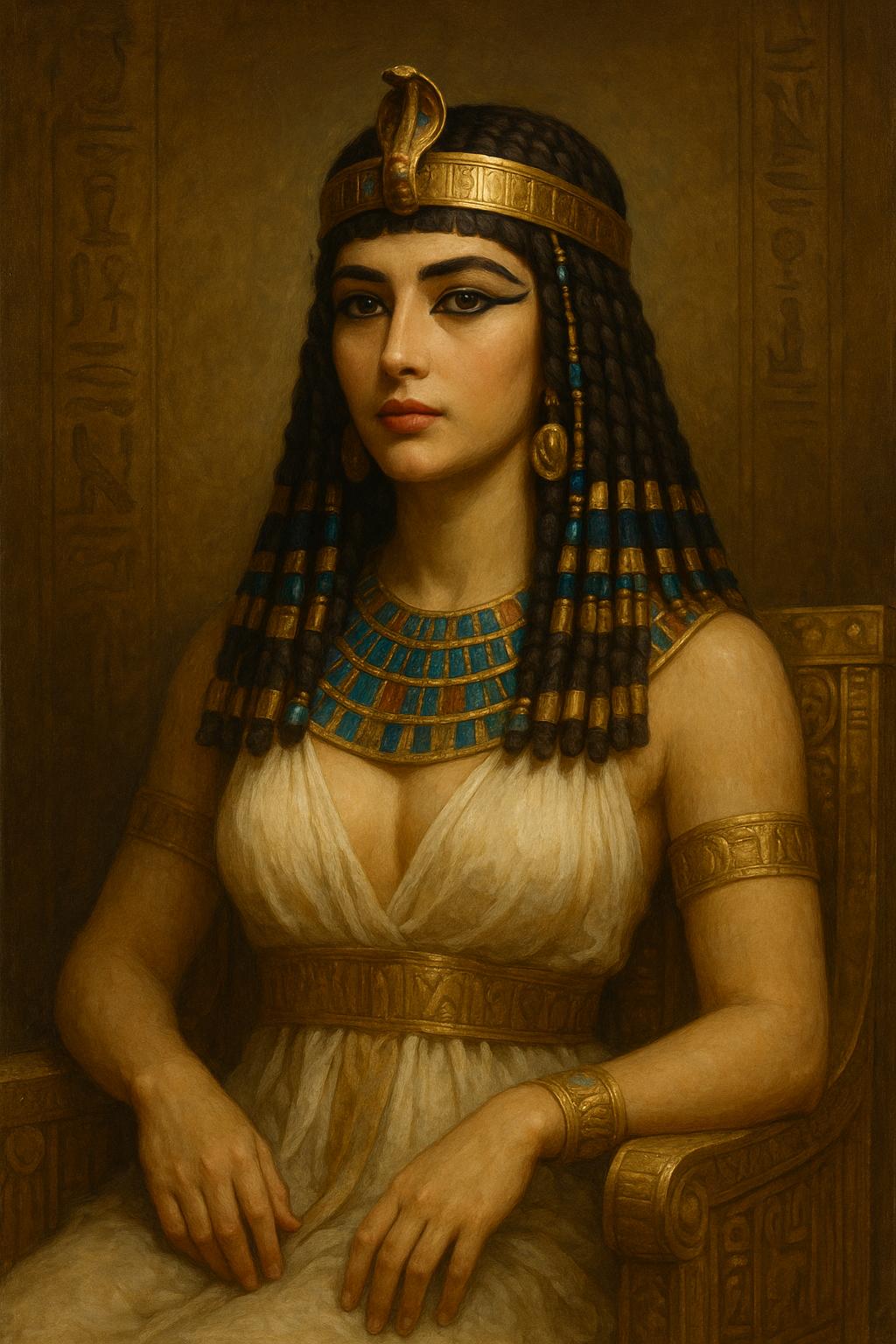




Early Life and Family Background of Cleopatra VII
Cleopatra Queen of Egypt is one of the most famous figures in ancient history. Known for her intelligence, political skill, and influential relationships with Julius Caesar and Mark Antony, her life story continues to inspire fascination and scholarly interest worldwide.
In this article, we explore her early life, rise to power, achievements, personal life, and the lasting legacy she left on Egypt and beyond.

Early Life of Cleopatra Queen of Egypt
Cleopatra Queen of Egypt, officially known as Cleopatra VII Thea Philopator, was born in 69 BC in Alexandria, Egypt. As a member of the Ptolemaic dynasty, she was of Macedonian Greek descent and inherited a powerful royal legacy.
Her father was Ptolemy XII Auletes, and she grew up in the royal family surrounded by political intrigue. From an early age, Cleopatra was highly educated, learning languages, philosophy, and science—a tradition among the Ptolemaic rulers. She was the only member of her dynasty known to learn the Egyptian language and embraced local customs, which helped her connect with her people.
Career and Achievements
Cleopatra Queen of Egypt gained recognition through the following key contributions:
- Becoming co-ruler of Egypt at age 18 with her younger brother Ptolemy XIII
- Forming political and romantic alliances with Julius Caesar and Mark Antony
- Maintaining Egypt’s independence against Roman expansion for over two decades
- Restoring stability and economic prosperity to Egypt during her reign
Key Events in Cleopatra Queen of Egypt’s Life
| Year | Event | Significance |
|---|---|---|
| 69 BC | Birth in Alexandria | Born into the Ptolemaic royal family |
| 51 BC | Becomes co-ruler of Egypt | Rules with her brother, faces early political challenges |
| 48 BC | Alliance with Julius Caesar | Regains the throne; ensures Rome’s support |
| 41 BC | Alliance with Mark Antony | Strengthens Egypt’s position; produces children with Antony |
| 30 BC | Death by suicide | End of Ptolemaic dynasty; Egypt becomes a Roman province |
Personal Life and Public Image
Cleopatra Queen of Egypt was known for her charisma, wit, and strategic mind. She was deeply involved in the politics of her era and is remembered for her romantic and political connections to Julius Caesar and Mark Antony, which shaped the fate of the Mediterranean world.
Her personal life received public attention for her relationships, legendary beauty, and portrayal as the “New Isis,” aiming to present herself as a divine figure to her subjects. While her alliances with powerful Roman leaders were central, Cleopatra was also a devoted mother to her children and determined to secure Egypt’s independence.
Legacy of Cleopatra Queen of Egypt
Cleopatra Queen of Egypt continues to influence others through:
- Her enduring image as a symbol of female power and intellect
- Inspiration for countless works of art, literature, movies, and plays
- A prominent role in education and world history classes as the last pharaoh of Egypt
This biography highlighted the journey and influence of Cleopatra Queen of Egypt. Her accomplishments and dramatic life story remain highly relevant in history, culture, and the study of powerful women leaders.
Learn more about historical and modern-day personalities on Vedantu’s platform.
- For more about key figures in Cleopatra’s life, see Julius Caesar Biography and Akbar Biography.
- Compare with other famous ancient rulers like King Tut and Nefertiti.
- Discover more about influential female leaders in Joan of Arc.
- Explore the broader ancient world with Alexander the Great.
FAQs on Who Was Cleopatra Queen of Egypt? Biography, Facts & Importance
1. Why is Cleopatra Queen of Egypt famous?
2. When did Cleopatra become queen?
3. What did Cleopatra look like in real life?
4. How did Cleopatra Queen of Egypt die?
5. Who was Cleopatra’s husband or main partner?
6. Was Cleopatra Egyptian or Greek?
7. What are 5 interesting facts about Cleopatra?
- She was the last pharaoh of the Ptolemaic dynasty.
- She spoke several languages.
- She was known for her intelligence and political skills.
- She had relationships with Julius Caesar and Mark Antony.
- The circumstances surrounding her death remain debated.
8. What is the true story of Cleopatra?
9. What nationality was Cleopatra, queen of Egypt?
10. What is Cleopatra known for?
11. What were Cleopatra's achievements as queen?





















